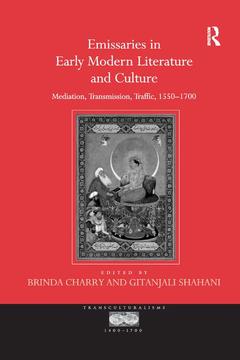Description
Emissaries in Early Modern Literature and Culture
Mediation, Transmission, Traffic, 1550–1700
Author: Shahani Gitanjali
Coordinator: Charry Brinda
Language: English
Subjects for Emissaries in Early Modern Literature and Culture:
Keywords
jonathan; burton; sanjay; subrahmanyam; ania; loomba; samuel; purchas; fynes; moryson; Ogier Ghiselin De Busbecq; Jerry Brotton; Royall Exchange; William Lithgow; Early Modern Travel Narratives; Dense; Violating; Guiana; Confers; Persona; Kinsman; Follow; Early Modern; Reciprocal Comparison; Early Modern English Identity; Dutch Merchant; Moorish Ambassadors; Early Modern English; Safavid Histories; English Rogue; Young Man; Pinto's Story; Nur Jahan; Stage Dutch
Publication date: 11-2016
· 15.6x23.4 cm · Paperback
Approximative price 192.54 €
Subject to availability at the publisher.
Add to cartPublication date: 02-2009
· 15.6x23.4 cm · Paperback
Description
/li>Contents
/li>Biography
/li>




